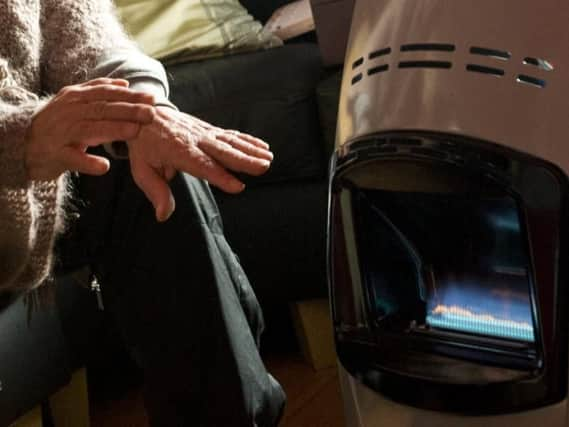Private rented sector needs to tackle fuel poverty, campaigners warn


Energy Action Scotland said that while the Scottish Government is taking action to tackle fuel poverty, particularly in the rented sector, the new Regulation of Energy Efficiency in Private Sector Homes (REEP) needed to be introduced as fast as possible after a consultation next spring to help people living in cold, damp properties.
Sister charity National Energy Action yesterday launched a campaign to lobby the UK Government to consider similar legislation.
Advertisement
Hide AdAdvertisement
Hide AdIt said that four million households in the UK still face the problems of living in a cold, damp home, affecting their life chances. The problem is particularly acute in privately rented homes such as bedsits and hostels.
The charity paints a worrying picture of the future for a baby born into cold housing, warning that she would be twice as likely to suffer from breathing problems such as asthma and bronchitis and three times as likely to to suffer respiratory illness.
Growing up in a cold, damp house can affect educational attainment, while adolescents are at risk of multiple mental health problems, the NEA warns.
By the age of 40, she is more likely to suffer anxiety caused by worry over falling into debt or failing to pay bills, while health problems could be aggravated. For pensioners, a cold home can make arthritis worse and raise the risk of falls.
Two-thirds of people in the housing sector questioned for a new report by the NEA said residents in houses in multiple occupation, such as bedsits, could not afford to heat their rooms or shared spaces adequately.
A similar number said the worst rental properties have such poor heating and insulation that it was impossible to keep them warm and free from damp.
Norman Kerr, chief executive of Energy Action Scotland, said that the REEP legislation, which has been delayed since its original consultation date proposed for before the election in May, needed to be brought in as soon as possible.
He said: "It would be good to know what exactly they mean by spring. This is a problem the Scottish Government knows exists and it is great they are putting money into it - unlike in England. It is a major problem at the lower end of the private rented market, there are a lot of homes which are in very poor conditions and people have no option but to live there."
Advertisement
Hide AdAdvertisement
Hide AdCraig Salter, Energy spokesman for the Consumer Futures unit at CAS. said: "Far too many households across Scotland cannot afford to heat their homes. At present around 35% of households in Scotland are in fuel poverty, and poor energy performance is a major contributing factor to this. It is therefore clear that more needs to be done to improve energy efficiency in our housing stock.
"The particular detriment that we see in the private rented sector means that the introduction of regulations for a minimum standard of energy performance would be a positive step, and it is welcome that the Scottish Government has committed to consult on this in the New Year. However, binding regulations must also include protections for tenants to ensure that obligations to improve standards do not result in unreasonable increases in rents."
He added: "But improving energy performance alone will not eradicate fuel poverty – more action is also needed to reduce energy bills and to support consumers to use energy efficiently.”